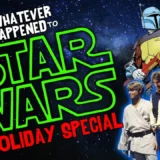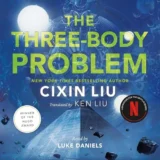Okay, so maybe there aren’t fifty shades, but I’ve yet to do a “50-shades of gray” take-off in a blog post so this seemed like a good time to play that card. The fact is that there are many different types of self-publishers and it drives me a little nuts when people lump them all together, and report statistics on the group as a whole. Self-publishing is very fragmented and some of these groups do amazingly well (even outperforming their traditionally published peers) while others will sell little to no books, so I wanted to take some time to discuss the various varieties.
Hobbyists
People self-publish for all kinds of reasons. Some do so with a desire to make money, maybe even earn an income, and others just want to hold a copy of a book they have written in their hand and no intention on selling it to anyone. Heck I’ve been on both sides of his. I self-published my Riyria Revelations with the desire toward income and I also self-published a family album that exists only for my kids and my mother. An often cited statistic is the average self-published author sells 50 books. But to understand this number, lets look at where it comes from. I first started seeing this number years ago in the pre-ebook revolution when print on demand publishers were touting the number of books they sold and reporting the number of titles produced. For instance in 2008 Author House reported 2,500,000 books sold across 45,993 titles = 54 books. While this data is still quoted often today, it is both misleading (because in lumps hobbyists ad professionals) and outdated (doesn’t take into account ebooks) and comes from 5 years ago which is even longer than “dog years.”
Professionals
The desire to earn money is what separates any professionals from hobbyists. It doesn’t necessarily mean they’ll make any money, but their focus to earn an income indicates a desire to invest in things such as cover design, editing, and marketing. Within this classification there are several sub-classes.
Traditional self-publishers
This is the route that used to be the most common (and for all I know it still is). Authors who choose this option start with a manuscript and a checkbook and buy a “publishing package” from organizations such as Author Solutions (iUniverse, AuthorHouse, Xlibris), Lulu, or Tate Publishing. Usually the package will include formatting, cover design, submission to various distribution channels, and additional services such as editing and marketing materials (bookmarks, postcards) can be added on or purchased separately. Many self-published authors call these organizations “scams” but I don’t agree with that label. These organizations legitimately spell out their fees and do deliver what they say they will. A scam has either hidden costs or fails to provide what is promised,and while they may stroke an author’s ego or overemphasize the possible sales volumes, they do abide by the terms they put in place. To me a better description is that they have a business model that highly benefits themselves and short changes the authors (which by the way is also how I feel about traditional publishers). This is why I don’t recommend using publisher services but instead recommend the do-it-yourself approach.
Do-it-yourselfers
These are the ones that I most think about when I think of the successful self-published authors. These people don’t by “publishing packages” from places like AuthorSolutions instead they submit directly to the channels and provide for their own formatting and cover design. They are entrepreneurial and investigate various price options, run promotions, and know how to maximize their exposure on sites like Amazon and Barnes and Noble. They are “in it to win it.” And approach their self-publishing much in the way a traditional publisher does. Some of these people are jacks of all trades and do everything themselves. Others realize where their limitations are and will hire others to provide services that they have deficiencies in. A Do-it-yourselfer uses distribution channels but is 100% in control of all aspects of the book from the cover design to the price.
Paths to self-publishing
Those who have never approached traditional publishers
A common statement by those who explain why they don’t read self-published works is, “Well if they were any good, why couldn’t they get traditionally published?” The assumption being that they submitted and were rejected and only as a last resort did they choose the self-publishing route. While I think there was a time when this was true for a large number of self-published authors, I can say that in today’s environment there are those who go straight to self-publishing. Reasons cited often include: quicker time to market, greater control, higher per book income. This speaks volumes about the viability of self-publishing when authors aren’t even interested in hearing what a traditional publisher has to say.
Those who have tried traditional and were turned down
Going back to the statement above, it would seem logical to conclude that works that were rejected shouldn’t be self-published. After all, rejection must indicate that they just aren’t any good. The problem is that’s not always the case…and often the author won’t hear the real reason for the rejection (form letters are so common these days). Truth is there are many reasons why books are rejected. They could be “too original.” Yes, there is such a thing. Publishers need to do a P&L (Profit and loss) analysis before making an offer and just as when trying to determine a house’s value “comps” are used in these calculations. If there are no similar books to the book submitted, it might be difficult to calculate a ROI (return on investment). Publishers hate risk and and uncertainty and if they can’t guess how a book will do, they may turn it down even though they recognize the quality of the writing and the story. It could also be that the publisher estimates that a portion of the market is already super saturated (there was a time when it was nearly impossible to sell a paranormal vampire romance to my publisher). Or it could be that the perception is the book is too narrowly focused. It might be that the publisher recently signed something similar. It could even be that the publisher was just plain wrong. When I first submitted Riyria every press turned it down. The fantasy genre had trended toward dark & gritty and my books are a throw back to more “heroic” type fantasy and so it was determined as “unmarketable.” But then I self-published, sold 70,000 copies (across 5 books), and the next time I knocked at New York’s door 7 or 8 publishers expressed an interest. It was signed by Orbit for six-figures and it was the same story that was rejected multiple times previously. In the first year its US English sales were 150,000 copies (across 3 titles) so I guess they were wrong.
Those who were given offers but turned them down
While it is true that most authors that knock on New York’s door will sign on the dotted line, there are some who have decided it wasn’t for them after all. I almost was one of these as my first glance at a big-six contract was a real eye-opening experience. I couldn’t understand why any writer would agree to such things…and was assured by my agent and my intellectual property attorney that the things I was objecting to were “industry standards.” In the end I got the most egregious clauses changed, and just resigned myself that the benefit to my career outweighed my distaste for some of the things I ended up agreeing to. Hugh Howey turned down multiple seven-figure contracts until he was able to get a print-only deal and keep his ebook rights. I also know some authors that agreed to deals, but then just couldn’t agree on the contract language and so they stayed self-published. So again, it’s a bad assumption to think that a self-published book “couldn’t” be picked up.
Those who were traditionally published and shift over to self.
As the momentum of self-publishing has grown, traditionally published authors started to see it as a viable alternative. Many authors have left their publishing houses to go it on their own. Some of these people feel “ill-treated” by their publishers, some just think they can “do better,” but the authors in this camp are very happy with the advantages of self-publishing and have no intention to ever traditionally publish again.
Hybrid Authors
These are authors who have produced books through both ways and decide the path for each project on a case-by case basis. I recently joined the ranks of the hybrid. I’ve been 100% self, 100% traditional, but with the release of Hollow World (June/July 2013 for Kickstarter contributors, Jan 20, 2014 for everyone else) I’ll have books available through both routes. I’m 50% through the first book in my next trilogy…which route will it be published by? I have no idea. A lot has to do with the state of the industry when I’m ready to submit it, what is being offered, and what I think I can make on my own. I think we’ll see a lot more hybrid authors and in general a hybrid will be the highest earning among all authors. How successful a hybrid author will depend a great deal on the way they approach it and I define the two broad categories:
The toe-dipper
These are people who hear all the hype about self-publishing and decide to give it a try and see if they can be swept away in the gold rush. Unfortunately, they often have poorly executed launches. Typically they’ll re-release a back list title that has reverted, write a short story (or collect a group of short stories), or take a “trunk novel” (something that was shelved because it was either rejected or the author didn’t think it was good enough to submit) and like testing the doneness of spaghetti, will throw it against the wall to see if it will stick. In most cases such ventures will fail (a topic for another post sometime) and the author will conclude that self isn’t viable. The truth is it could be very viable if they did what a publisher does….select quality titles that have a substantial segment interested in them, produce a quality produce, and market it well. Instead they expect it to sprout wings on it’s own and when it doesn’t the conclusion is “I wasn’t lucky enough.” It’s little wonder why their projects fail.
The professional hybrid author
Contrasting the toe-dipper is the professional hybrid. These are people who approach self-publishing in exactly the same way as the purebred self-published authors. They have a savvy business acumen and concentrate on issues such as: proper category selection, price experimentation, author branding, professional packaging, and in short produce quality products that are every bit as professional as the ones being released by traditional publishers. Readers who routinely bypass self-published titles by unknown authors are more likely to take a chance on someone who has been traditionally published, and in some cases won’t even realize that they just purchased a self-published work. Then there is the already established readership base, which as long as you don’t release garbage, will want more of your work.
The unworthy
I had a real hard time coming up with a title for this last classification – as it seems so judgmental. But in the end it was better than everything else I could come up with. I mentioned early on that hobbyists distorted the self-publishing data, but it’s the unworthy that has the biggest affect of skewing the statistics. The Taleist survey, which polled 1,007 self-published author in February 2012 is a good example. Many use its data to point out that half of all self-published authors earn less than $500, but considering that many of the books produced by authors on this list weren’t “ready for primetime” it’s a wonder they made any money. The same report indicates “less than 10% make a living wage” as if that is a bad thing…what the headline should be is that in this very small sampling over 100 self-published authors ARE earning a full-time living. If you took a sampling of every author who has ever submitted a book to the query-go-round. My guess is few of them have ever made a dime and probably a fraction of a percent earn a living through traditional publishing. My point here is that if you are going to compare apples to apples then you need to consider the starting pool to be all authors that finish a book and submit it for publication. In this subset the chances of success traditionally is about the same as the chances if you self-publish. In both cases most will never make ANY money and only a very small percentage will earn a living wage. Keep in mind that with self-publishing the entirety of the slushpile is “out there”. No gatekeeper has prevented it from getting on the market. As previously mentioned, not every rejected manuscript is turned down because of a lack of quality…there are many reasons why a book could be rejected, but certainly the biggest factor is indeed that many submissions just aren’t “good enough.” In an ideal world these same “rejects” would be filtered out, but in the self-publishing world, which lacks an initial gatekeeper they will get “published.” That being said, all books have an ultimate gatekeeper…and it will be the readers that decide a book’s fate. “Unworthy” self-published books will fail to gain a readership, there will be no word-of-mouth recommendations and they will fade into oblivion. The problem, of course, is there really is no way of knowing before you “put it out there” what the verdict will be. So as you can see the approaches to self-publishing vary widely and for the most part it is going to be the “professional” self-published authors (whether they are 100% self or a hybrid) that will ultimately be the portion of the self-publishing pool worth looking at. I tend to think of this group as those who “could” be traditionally published. This means that there is a known market and a quality of writing that serves as the pre-requisite of any possibility of a book’s success. When comparing this portion the self-published to the traditionally published I think you’ll find that:
- For the very successful – (those capable of selling 250,000+) books traditional will probably yield better results than self.
- For the midlist (those selling 10,000 – 250,000) the self-published author will out earn the traditional due to their higher per book income
- For the low-sellers (those selling under 10,000) again I think the self-published will earn better, unless an excessive advance was provided and the books sales fall significantly below the forcast (in which case the author will have problems getting any subsequent print deals).
So there you have it the various options for self-publishing. Not all of them are looking to earn a living, but for the ones that are, it’s best to “think like a publisher” and strive for the highest quality product possible. If you do the production well, have written a good book, and get the pump primed by getting it in front of some people who will perpetuate the word-of-mouth buzz for the title, then your chances for success are very good.
Michael J. Sullivan is a speculative fiction writer who has written twenty-five novels and released nine. Eight of his fantasy books (The Riyria Revelations, and The Riyria Chronicles), were published by Hachette Book Group’s Orbit imprint. Hollow World, a science-fiction thriller was released by Tachyon Publications. The first four books of his new series, The First Empire, has sold to Random House’s Del Rey imprint, and the first book is scheduled to be released in the summer of 2016. He can be found on twitter, through his blog www.riyria.com, and on his facebook page and his publisher’s page for the series.










@Tanya – if given the choice you should always try to self-publish the ebook – the returns will, in general, be much greater than you’d get if you went directly through the publisher who has your print book.
@Michael – I myself started out self-publishing and had no “platform” before releasing my first book. I, and many other genre authors have been able to navigate the waters successfully. I suggest you check out this link. Try checking out this link: https://www.reddit.com/r/Write2Publish/comments/1aqjxy/authors_guide_to_self_promotion/ which should provide you a lot of information on how to promote.
@Jay – I think the problem isn’t so much the readers as it is the bean-counters who don’t know how to make a proper P&L analysis for a book without comparable. Also if they don’t know which shelf in the bookstores a book would show up then that would be a significant problem for them.
Your comment about works being “too original” caught my eye. I take it that lack of familiarity puts customers off and gets in the way of sales.
My question would be how you would market your book if you haven’t published one yet? Obviously if you do an ebook, you need to make people aware of it somehow, but with no prior track record that can be very difficult to do.
Very interesting! I will tweet this for my Spanish language science-fiction friends. I am in my way of becoming a hybrid, because I am interested in e-book and talking with my publisher they say they are studying the possibility but nothing concrete yet, and because my contract says nothing about e-books, they have give green light to make the e-book, lets see what is going to happen (I have to say I published in Spanish with an important publisher, but I think I am a “midlist”)